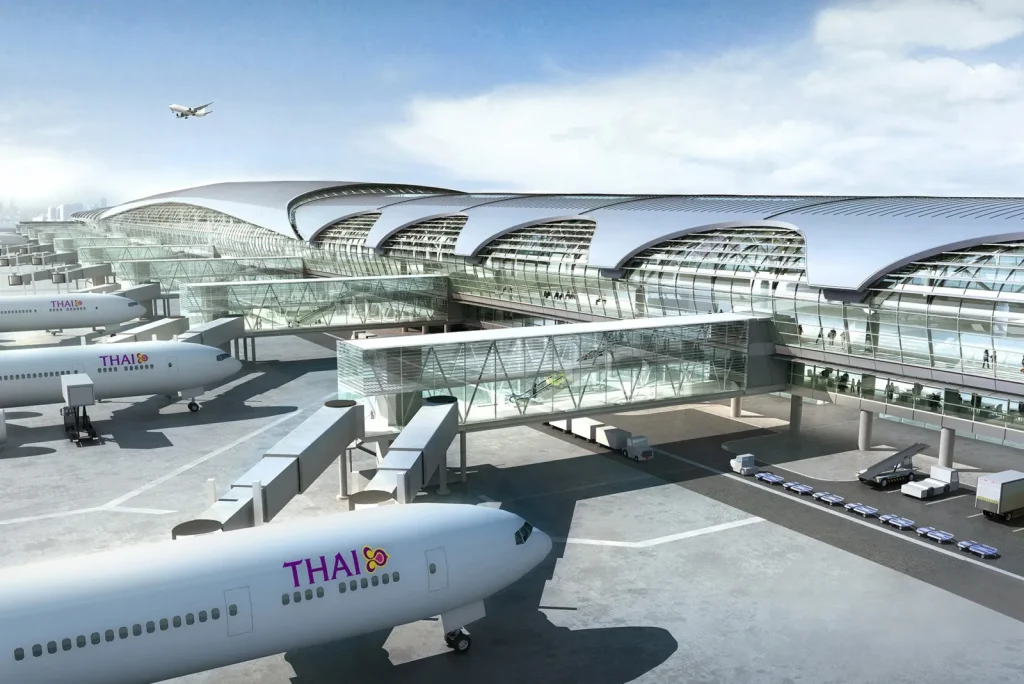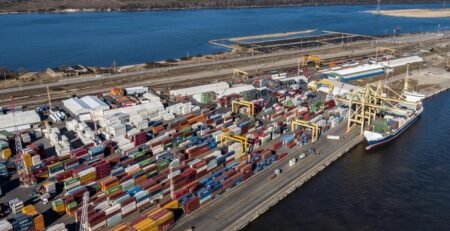Bangkok’s Suvarnabhumi Airport Tests a “Smart Cargo” Platform Linking Post and Airlines

By Maria Kalamatas — September 2, 2025
BANGKOK — September 2, 2025. The ceremony didn’t feel like a typical airport launch. No ribbon cutting on a new terminal, no engine roar in the background. Instead, a giant screen flickered to life inside a conference room at Suvarnabhumi Airport, showing live cargo data moving across digital maps. Officials from Thailand Post and Airports of Thailand leaned over laptops, explaining how a new “smart cargo platform” will knit together airlines, customs, trucking firms, and warehouse operators.
For years, freight forwarders here have grumbled about delays caused by missing papers, siloed IT systems, and endless phone calls. The platform promises to bring all those pieces into a single window.
“Right now, half my time goes to chasing signatures,” said Nalinee Wong, who runs a mid-sized forwarding firm near Lat Krabang. “If the system shows me the customs clearance status instantly, I save hours, maybe days.”
How it works
The tool is designed to give everyone in the chain — airlines, handlers, drivers, customs officers — the same view. A stalled truck at a gate lights up red on the dashboard. A pallet missing its code is flagged before it even leaves the warehouse. Drivers receive push alerts telling them when to arrive, cutting the long queues that often snake outside the terminal.
Why it matters
Thailand has become one of Asia’s export powerhouses, from mangoes and seafood to auto parts and electronics. But Suvarnabhumi’s cargo reputation has lagged: too much paperwork, too many manual checks. By digitizing the process end to end, the airport hopes to shave hours, even days, off transit times — and keep shippers from rerouting freight through Singapore or Kuala Lumpur.
Skepticism remains
Not everyone in the room was convinced. A European carrier’s rep, speaking quietly after the presentation, muttered: “We’ve seen projects like this stall after the headlines fade. The tech is the easy part — getting all the players to actually use it, that’s harder.”
Outlook
The first phase will run through the end of this year, covering a handful of airlines and major freight forwarders. Full rollout is penciled in for 2026. If it works, Suvarnabhumi could finally catch up with rival hubs on connectivity — and exporters might see their goods fly out a little faster, with fewer midnight phone calls.
The post Bangkok’s Suvarnabhumi Airport Tests a “Smart Cargo” Platform Linking Post and Airlines appeared first on The Logistic News.
Share this post
Related
Posts
The United States seizes a 7th tanker: pressure mounts on sanctioned ships
New episode in the maritime tug-of-war over sanctions: the United States has seized a seventh tanker suspected of operating in...
China replaces US barrels with Canada: new impact on tanker routes
The geography of oil is shifting, and shipping feels it immediately. According to analyzes reported by BIMCO, Chinese crude oil...
The Port of Klaipėda Signs a Record Year Driven by Containers, LNG, and Ro-Ro
The Lithuanian port of Klaipėda announces a historic performance in 2025: 39 million tons handled, despite a tense geopolitical context...
Ocean Alliance maintains the detour via the Cape, while preparing a “Suez plan”
The Ocean Alliance (CMA CGM, COSCO Shipping, Evergreen, and OOCL) has just unveiled its “Day 10” East-West network, which will...




